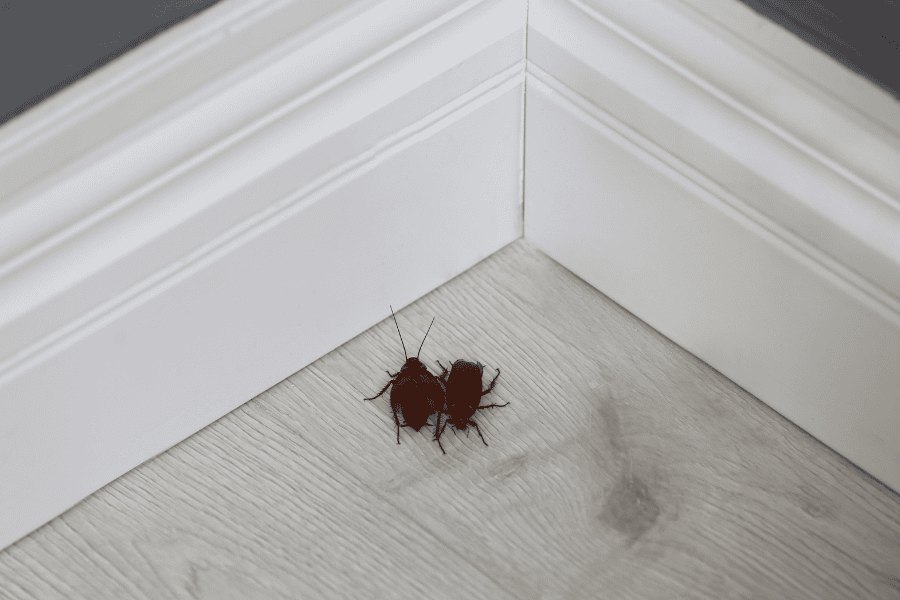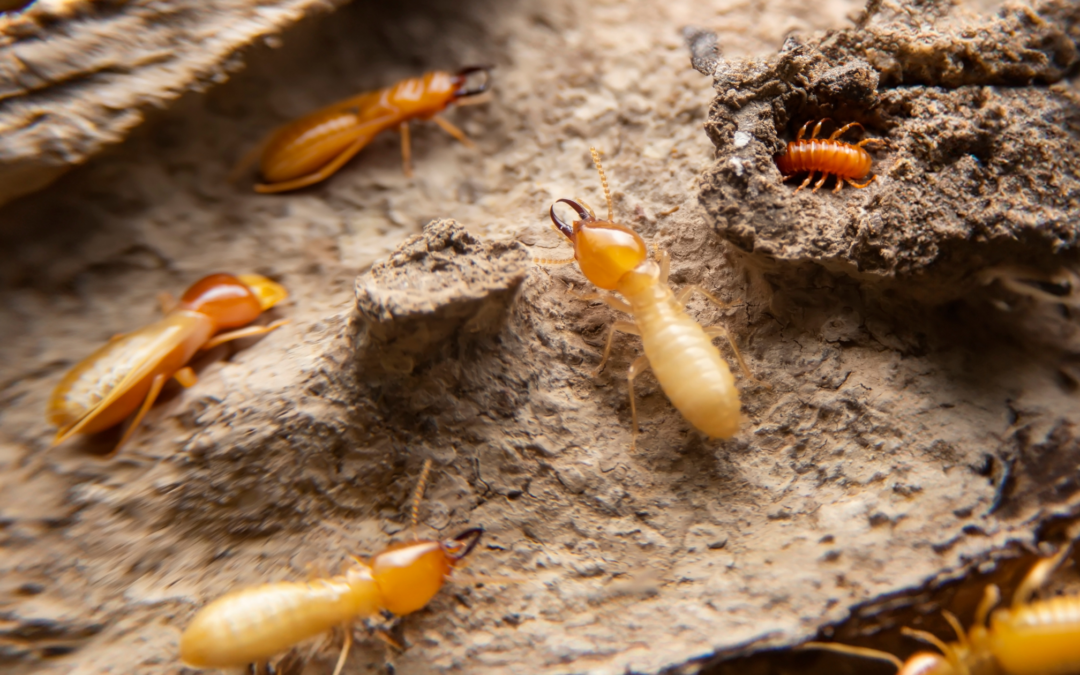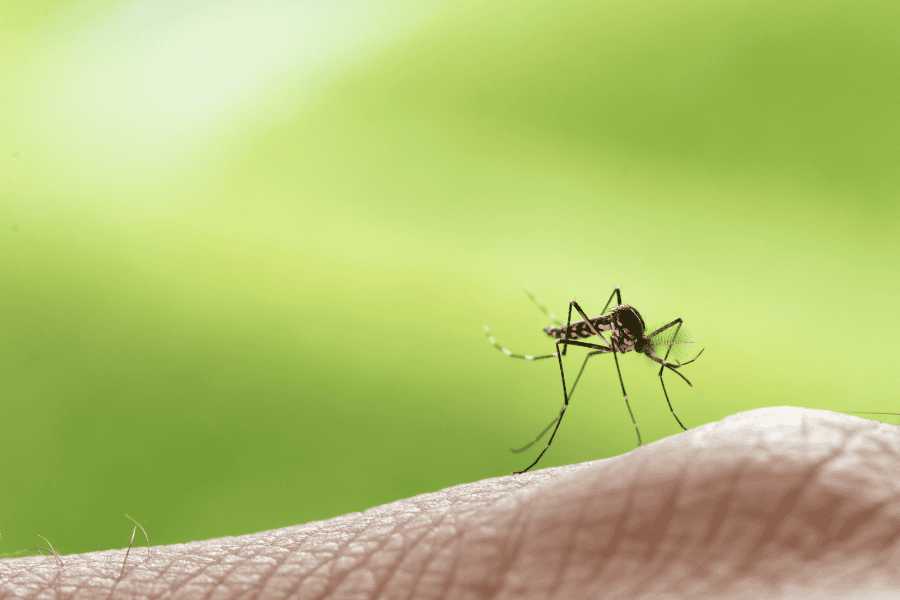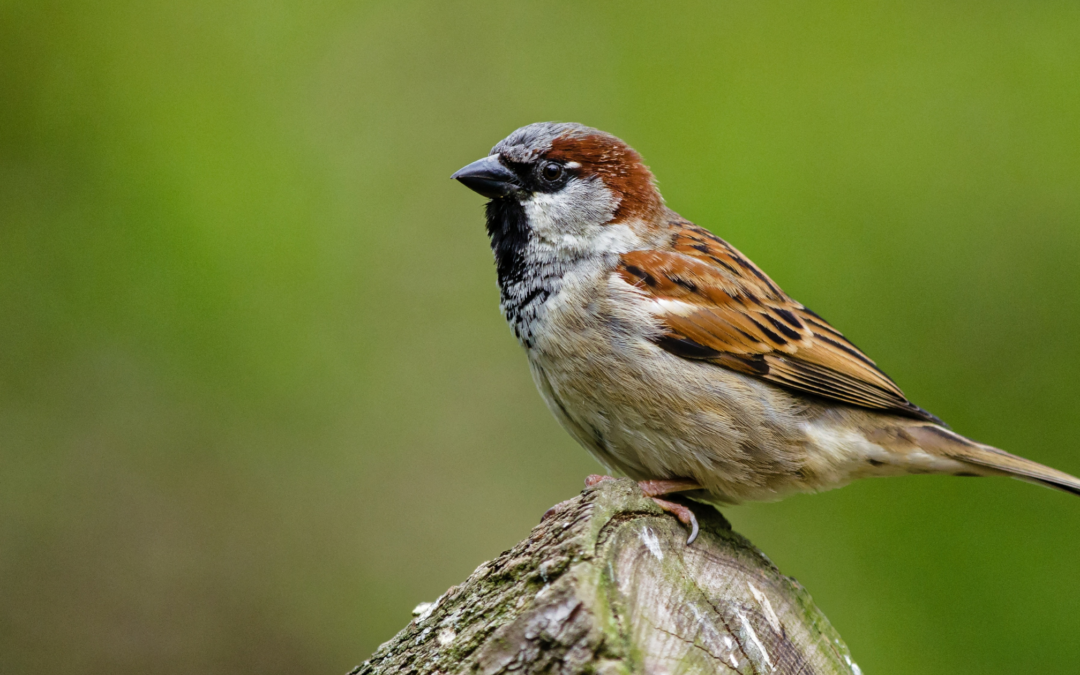READY TO GET STARTED?
REQUEST A FREE ESTIMATE
Fill out the form below or call (888) 466-7849 for a free, no-obligation estimate.

Mosquitoes are not only nuisance pests, but also pose a potential threat to businesses, especially those in outdoor or hospitality sectors. While the annoyance of mosquito bites is well-known, the health risks they pose and the negative impact on customer experience and business reputation are often underestimated. Continue reading to discover the reasons why mosquito control for business is important.
Mosquitoes are vectors for various diseases, including West Nile Virus, Zika virus, dengue fever, and malaria. Not attempting to control mosquito populations on your properties can expose your customers and employees to these health risks – leading to a poor reputation. Mosquito bites can lead to discomfort, allergic reactions, and in severe cases, transmission of diseases. Putting a mosquito reduction program into place can demonstrate a commitment to the well-being of both customers and your team.
If your business relies on outdoor settings, such as restaurants, wedding venues, or recreational facilities, then mosquitoes can significantly detract from the customer experience. Nothing ruins a pleasant outdoor experience more than swarms of mosquitoes. By proactively addressing mosquito infestations through professional mosquito control measures, you create a more enjoyable experience for your customers.
Even if you take preventative measures, mosquitoes can still become a nuisance – putting your customers and teammates at risk. Be sure to call a pest management team near you for a free, personalized, no-obligation quote for mosquito control for your business!

Living in Florida, we have to deal with our fair share of bugs invading our home throughout the year. Whether mosquitoes are invading your yard, ants are taking over your kitchen, or rats are raiding your trash cans, household pests can surely become a major issue. Unfortunately, humans can have a lot to do with pest infestations by our habits, often leading bugs right into our home. We break down the common reasons you could have a bug problem into your Florida home.
Our leftover trash is dinnertime for pests! Pests, such as rats and ants, are all looking for a food source for survival and will often look to our trash cans for available food, creating a huge mess in the process. It’s important to secure your outside and inside trashcan with a tightly sealed lid and ensure your trash bags are sealed without rips or tears.
Several pests prefer a damp environment and need water to survive too. Unfortunately, we also need water, and certain factors throughout our homes can provide pests with a water source, often leading to a bug problem. A leaky faucet can attract pests, like mice, who will return to areas if they have access to water or food. Make sure to check throughout your home for any leaky pipes, faucets, or AC units and repair them as soon as possible. Likewise, your basement and crawlspace can often create excess moisture that can lead to fungus, bad air quality, and pest infestations. Utilize a dehumidifier to dry any wet areas and consider crawlspace enclosure to ensure no moisture is found.
Clutter, such as old newspapers, magazines, and cardboard boxes can provide several pests with the perfect environment. Decluttering and cleaning items out to eliminate hiding places will help prevent pests overall. Consider utilizing plastic storage containers with lids to store any items and elevating them off the ground. Additionally, avoid having clothes piled on the floor, as bugs like spiders are known to hide out in them.
Dirty dishes, food crumbs, and drink spills can attract pests like flies, ants, roaches, and more right into your home! After each meal, wash and put away your dishes to avoid these pests. Likewise, clean up any leftover spills and food crumbs off your floors, dining room table, and counter tops. Don’t forget to clean behind and under your kitchen appliances too as pests like to hide behind stoves and refrigerators to find a food source.
If you’ve noticed an increase of bugs throughout your Florida home, it’s best to call a pest control company near you. These professionals will provide you with a comprehensive pest control and prevention plan.


As a Florida resident, dealing with mosquito season each year can start to feel like a never-ending battle! Luckily, there are plenty of ways you can deter these pests from your property. We breakdown a guide on mosquito prevention you can utilize to protect your family and property in Florida from these pests!
To survive and breed, female mosquitoes need a blood meal, often looking to humans and pets for it. Mosquitoes will transfer diseases and viruses, including the Zika virus, dengue, West Nile virus, and more, making it crucial to protect yourself and your family from mosquito bites during their peak season. One of the best ways to deter mosquitoes from biting you and your family is utilizing mosquito repellent that contains DEET. Repellents with DEET can be very effective as they will block the mosquitoes CO2 receptors. We recommend spraying it onto your hands and running it over your skin instead of spraying it directly onto the skin.
Your lawn is the first line of defense against mosquitoes taking over. The best way to avoid mosquito infestations is to maintain your lawn and place preventative measures throughout your yard to deter them away. Mosquitoes only need the smallest amount of standing water to breed, so it’s important to remove any potential breeding sites throughout your property. Inspect your yard and remove items that can hold water, leaves and debris, clogged gutters, and drainage sites. Likewise, look to trim trees and shrubs that are overgrown and continue your ongoing mowing schedule.
Have you ever had to deal with a constant buzzing sound in your home? If so, you know how annoying it can be, especially when you can’t find the culprit! To keep mosquitoes from sneaking into your home, confirm that your windows and doors screens are in good condition, replacing any torn ones if needed. During peak mosquito season, try to keep your doors and windows closed as much as possible.
While placing these measures throughout your home will always support mosquito prevention efforts, sometimes it’s best to reach out to a mosquito control company near you for even more support. Consider hiring a reputable Florida mosquito control company to inspect your property, identify breeding sites, and implement targeted treatments to reduce mosquito populations effectively.

Nestled in the heart of the South, Georgia boasts lush landscapes and vibrant wildlife. However, along with its natural beauty comes the challenge of dealing with nuisance birds. From pesky pigeons to assertive seagulls, these feathered intruders can wreak havoc on homes and businesses alike. In this guide, we’ll explore common nuisance birds found in Georgia, the risks they pose, effective methods for bird control, and preventive measures to keep your property bird-free.
Georgia is home to a variety of bird species, some of which can become unwelcome guests on your property. Among the most common nuisance birds encountered in the state are:
Beyond their irritating presence, nuisance birds can pose several risks to both property and human health:
When faced with a bird problem, it’s essential to employ effective bird control strategies. Here are some methods commonly used by wildlife control companies:
While effective bird control measures can help address existing bird problems, preventing future infestations is key to long-term success. Here are some preventive measures to consider:
Dealing with nuisance birds can be a challenging task for property owners, but with the right approach, it’s possible to keep these feathered intruders at bay. By understanding the common nuisance birds found in Georgia, recognizing the risks they pose, and implementing effective bird control and prevention strategies, you can protect your property from damage and ensure a bird-free environment. Whether you’re facing a minor bird problem or a full-blown infestation, partnering with a reputable wildlife control company can provide expert assistance in addressing your bird control needs.